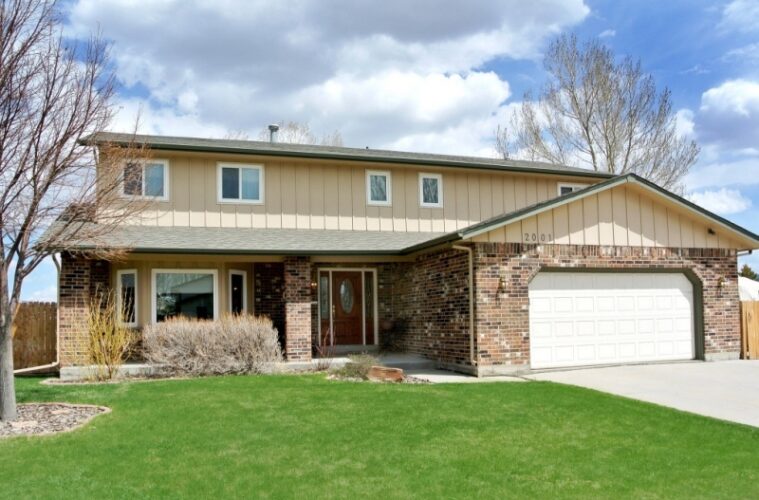Choosing a townhouse as your new home involves careful consideration of various factors that can significantly impact your living experience. With the growing popularity of townhouses, it is essential to understand the key factors that should influence your decision-making process. From location and size to homeowners associations and community amenities, this article will guide you through the crucial aspects to consider when choosing a townhouse.
Introduction
As the demand for housing in urban areas continues to rise, townhouses have emerged as an attractive option for many homebuyers. Townhouses are multi-level residential units that share walls with neighboring properties. They offer a balance between apartment living and single-family homes, providing a blend of privacy, convenience, and shared community spaces.
Location
One of the most critical factors to consider when choosing a townhouse is its location. The location determines not only your daily commute but also the accessibility of amenities and services. Proximity to schools, healthcare facilities, shopping centers, and recreational areas should be taken into account. Additionally, easy access to public transportation and major roadways can greatly enhance your convenience and quality of life.
Size and Layout
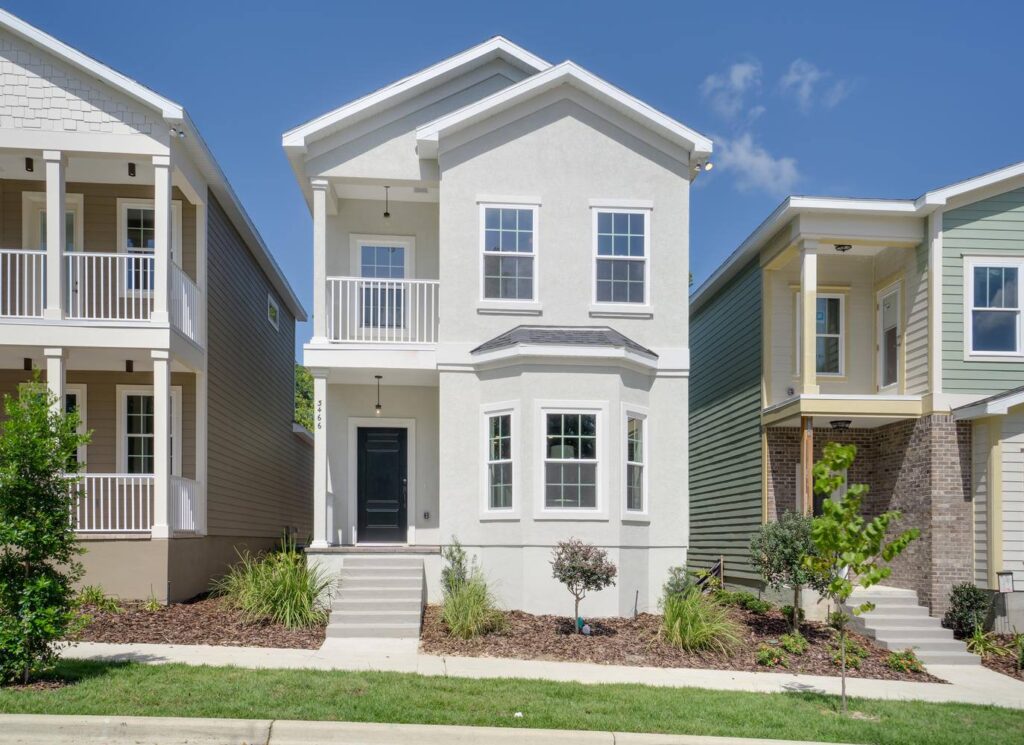
source: pinterest.com
The size and layout of a townhouse play a vital role in determining whether it meets your needs and preferences. Evaluate the square footage and number of bedrooms and bathrooms to ensure they align with your requirements. Additionally, consider the layout and floor plan of the townhouse to ensure it suits your lifestyle. Assess factors such as the placement of rooms, the flow of space, and the overall functionality. It’s important to have a balance between having enough space for your needs and avoiding excessive square footage that might result in unnecessary maintenance and higher costs.
While evaluating the size and layout is essential, it’s equally helpful to consider the broader pros and cons of living in a townhouse. Townhouses can offer a practical balance of space and convenience, often featuring modern layouts and shared amenities that suit a variety of lifestyles. However, factors like shared walls, limited outdoor areas, or homeowners’ association guidelines may influence daily living. Understanding these aspects alongside the layout can provide a fuller picture of how well a townhouse fits your needs.
Homeowners Association (HOA)
Many townhouse communities have a homeowners association (HOA) that manages and maintains common areas and enforces certain regulations. It’s crucial to understand the role of the HOA and its impact on your living experience. Research the HOA fees and any restrictions or guidelines imposed on homeowners. Review the HOA’s reputation and involvement in the community to ensure it aligns with your expectations.
Privacy and Noise
Living in close proximity to neighbors is a characteristic of townhouse living. Consider the level of privacy offered by the townhouse and the surrounding community. Factors such as the distance between units, the design of shared walls, and the availability of private outdoor spaces can affect your privacy. Additionally, evaluate the noise levels within the community, including potential disturbances from neighbors and external sources. Check if the community has policies in place to manage noise and maintain a peaceful environment.
Maintenance and Upkeep
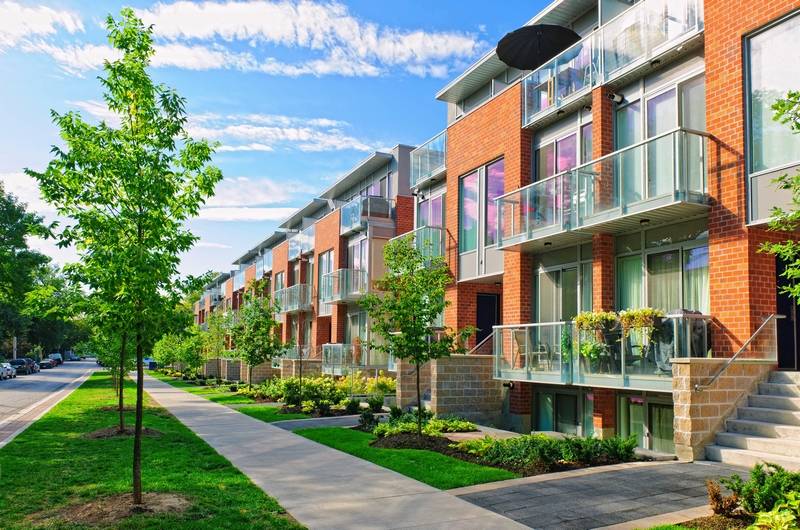
source: pinterest.com
When choosing a townhouse, it’s essential to consider the maintenance responsibilities and costs. Determine whether you’ll be responsible for maintaining your unit’s exterior or if the HOA takes care of it. Assess the condition of common areas such as landscaping, parking lots, and recreational facilities. Review the maintenance services provided and any associated costs. Understanding these factors will help you anticipate the time and financial commitments required to keep your townhouse in good condition.
Security
Security is a significant consideration when choosing a townhouse. Evaluate the security measures in place within the community. This may include gated entrances, surveillance systems, security personnel, or access control mechanisms. A secure environment provides peace of mind and ensures the safety of you and your belongings.
Community Amenities
Townhouse communities often offer shared amenities that enhance the quality of living. These may include fitness centers, swimming pools, parks, playgrounds, or community gathering spaces. Consider the value these amenities add to your lifestyle and whether they align with your interests and preferences. Assess the condition and maintenance of these facilities to ensure they are well-maintained and accessible.
Cost and Affordability
When evaluating townhouses, it’s important to consider both the purchase price and the long-term affordability. Assess the purchase price in comparison to similar properties in the area. Take into account monthly expenses such as mortgage payments, property taxes, HOA fees, insurance, and utilities. Ensure that your budget allows for comfortable and sustainable homeownership without straining your finances.
Resale Value and Market Trends
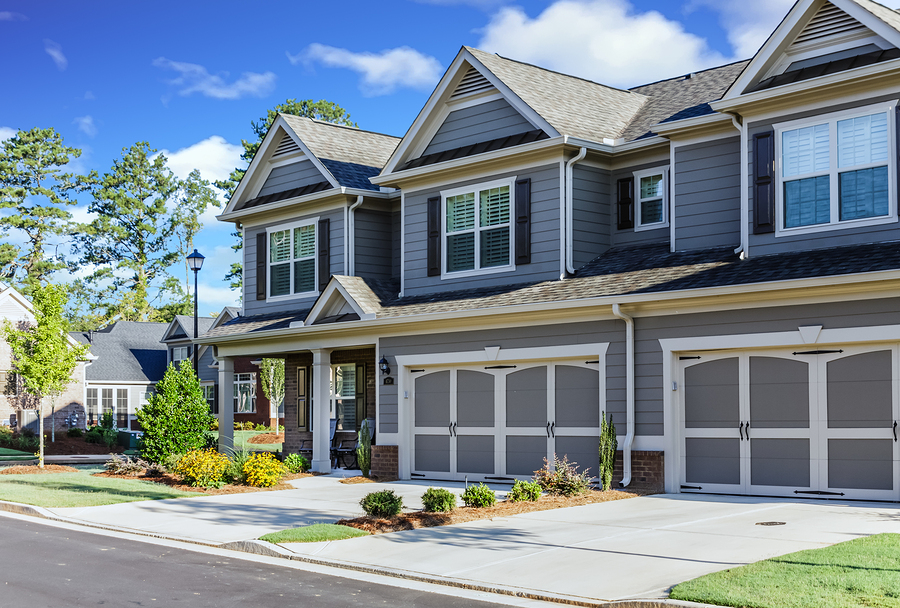
source: pinterest.com
Even if you have no immediate plans to sell, it’s wise to consider the resale value of the townhouse. Research the local real estate market trends and understand the factors that impact property values. Factors such as location, community reputation, nearby amenities, and market trends can influence the future resale potential of your townhouse. By considering these factors, you can make an informed investment decision.
Reviews and Testimonials
To gain insights into the living experience in a townhouse community, read reviews from current residents. Websites, social media groups, and community forums are valuable resources for gathering firsthand experiences. Additionally, try to connect with homeowners within the community and seek their testimonials. Hearing directly from those who live in the townhouse complex can provide valuable insights and help you make an informed decision.
Environmental Factors
In today’s environmentally conscious world, considering the environmental factors of a townhouse is important. Look for features that promote energy efficiency, such as energy-efficient appliances, insulation, and windows. Evaluate whether the construction materials and practices used in the townhouse align with sustainable and eco-friendly standards. This includes aspects such as water conservation, waste management, and the use of renewable energy sources. Choosing an environmentally responsible townhouse can contribute to a greener lifestyle and potentially reduce your carbon footprint.
Future Development and Expansion

source: pinterest.com
When choosing a townhouse, it’s crucial to consider potential future developments and expansions in the surrounding area. Research any planned construction projects, infrastructure improvements, or zoning changes that might impact the value and livability of your townhouse. Understanding the long-term vision for the area can help you make an informed decision about its suitability for your needs.
Legal Considerations
Before finalizing the purchase of a townhouse, it’s important to review all relevant contracts and legal documents. Consider hiring a real estate attorney who specializes in townhouse transactions to assist you. They can help ensure that you fully understand your rights, obligations, and any potential legal implications associated with the purchase. This step provides added protection and peace of mind throughout the buying process.
Personal Preferences and Lifestyle
Ultimately, choosing a townhouse should align with your personal preferences and lifestyle. Consider factors such as the overall ambiance of the community, the demographics of the residents, and the overall vibe of the neighborhood. Assess whether the townhouse and its surroundings reflect your values, interests, and aspirations. By taking these personal aspects into account, you can find a townhouse that truly feels like home.
Conclusion
Choosing a townhouse as your new home involves careful consideration of multiple factors. From location and size to homeowners associations, amenities, and personal preferences, each aspect plays a role in shaping your living experience. By thoroughly evaluating these key factors, conducting research, and seeking testimonials, you can make an informed decision that aligns with your needs, lifestyle, and long-term goals.
FAQs (Frequently Asked Questions)
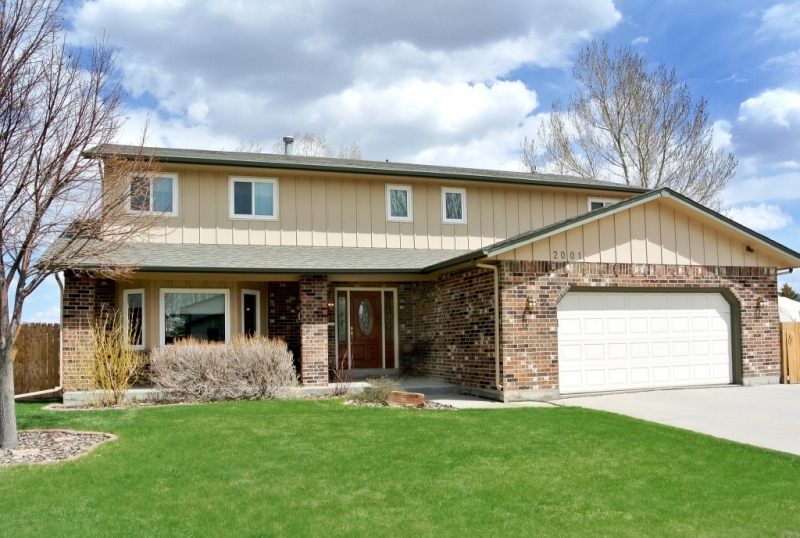
source: pinterest.com
1. Are townhouses a good investment?
Townhouses can be a good investment option, especially in desirable locations with strong market demand. However, it’s important to thoroughly research the local real estate market, consider factors like resale value, and assess the long-term growth potential before making an investment decision.
2. How do I find the right townhouse for me?
Finding the right townhouse involves a combination of factors such as location, size, amenities, budget, and personal preferences. Working with a knowledgeable real estate agent, conducting thorough research, and visiting potential properties can help you find a townhouse that meets your needs.
3. What are the advantages of living in a townhouse?
Living in a townhouse offers several benefits, including shared amenities, a sense of community, potentially lower maintenance responsibilities, and a balance between privacy and social interaction. Townhouses are often located in convenient areas close to amenities and offer a middle ground between single-family homes and apartments.
4. How do HOA fees work?
HOA fees are typically paid by townhouse owners to cover the costs of maintaining common areas, shared amenities, and community services. The fees vary depending on the development and can be monthly or annually. It’s important to understand the specific fees and regulations of the HOA before purchasing a townhouse.
5. Can I customize a townhouse to fit my style?
The level of customization allowed in a townhouse depends on the specific regulations set by the HOA and local authorities. While some modifications may be permitted, there may be restrictions to maintain a cohesive appearance and protect property values. It’s essential to review the HOA guidelines and consult with them before making any major changes.

